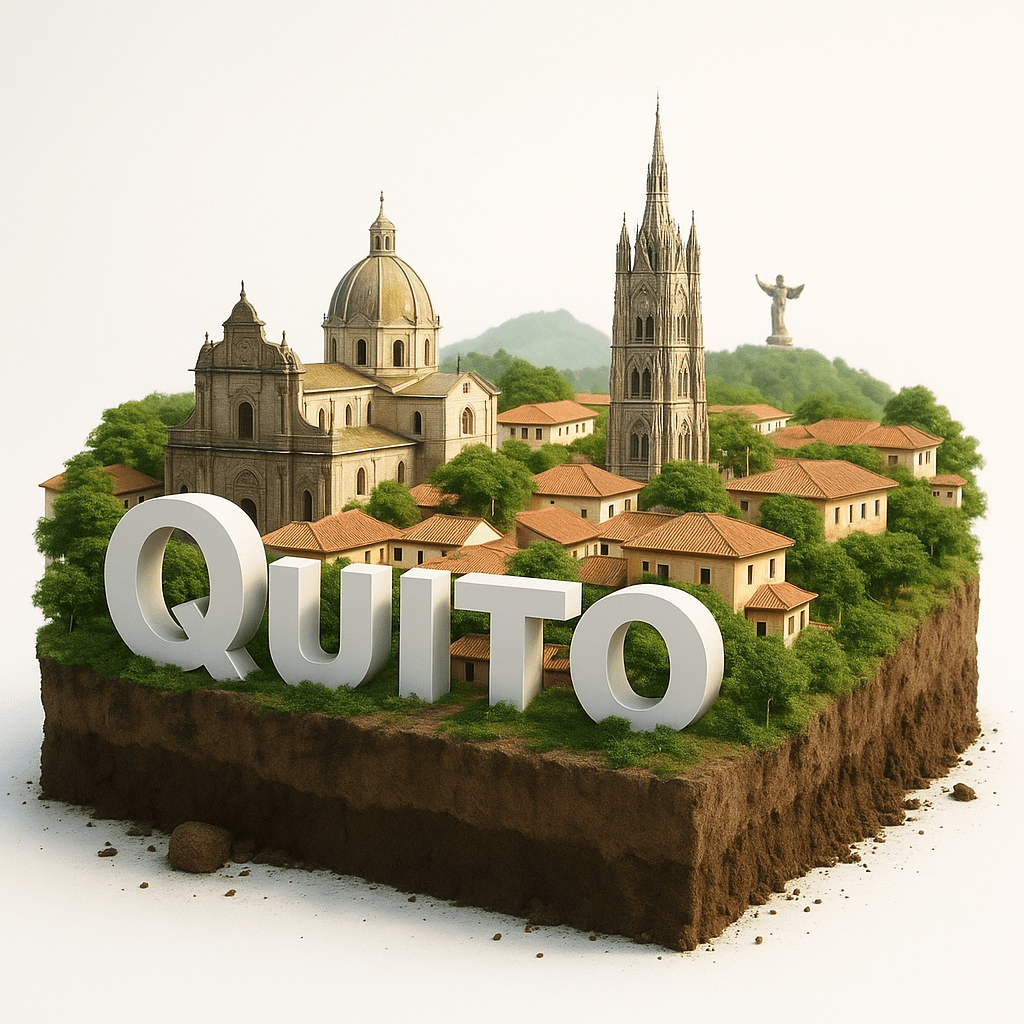Dioramas and eye fish

How I Created These Stunning Dioramas and Tiny Planet Cityscapes Using ChatGPT and AI Prompts
In the ever-evolving world of digital creativity, artificial intelligence has become a powerful ally in storytelling and visual exploration. The images you’re seeing here—meticulously crafted dioramas of Ecuadorian cities and whimsical, tiny planet-style representations of iconic UK cities—are the product of thoughtful prompt engineering using ChatGPT and an advanced image generation model.
In this article, I will walk you through the creative process I used to develop these two distinct styles of cityscapes: the diorama aesthetic for Ecuador and the tiny planet (fisheye) aesthetic for the UK.
Each image was brought to life through a series of well-crafted prompts, artistic vision, and a clear understanding of how to manipulate AI to deliver hyper-detailed and stylised visual results.
Part 1: Ecuadorian Dioramas
The first five images in the series portray the cities of Guayaquil, Cuenca, Galápagos, Quito and Manta in Ecuador.
These were all designed with a diorama style, with the aim of making the images appear as if small sections of each city had been lifted from the earth and placed gently on a clean, minimalist background, incorporating hyperrealistic architectural and natural details.
Visual Characteristics:
- Floating land blocks with visible soil layers
- Prominent landmarks (e.g. cathedrals, statues, seafronts)
- Greenery, palm trees, colonial roofs
- Clear, diffused daylight
- Large, 3D block letters spelling out each city’s name

Prompt Structure (Guayaquil):
“A hyperrealistic miniature diorama of Guayaquil, Ecuador. The scene shows the Cathedral of Guayaquil, the Torre Morisca clock tower, and the colourful hillside of Las Peñas. Surrounded by palm trees, colonial houses with red-tiled roofs, and a lush green environment. The terrain is a square chunk of land floating against a white background, with visible soil layers beneath. The word ‘Guayaquil’ is displayed in large, clean, 3D block letters integrated into the scene. Clean daylight illumination, no people, soft shadows.”
Prompt Notes:
- Specific landmarks were included for authenticity.
- The floating island style was essential to achieve the diorama effect.
- Consistent lighting direction and colour palette ensured visual unity.
This formula was adapted and personalised for each of the other cities:




This formula was adapted and personalised for each of the other cities:
Cuenca:
- Landmarks: Catedral de la Inmaculada Concepción, colonial bridge over the Tomebamba River
- Elements: Blue domes, cobblestone paths, lush greenery, historical statue
Galápagos:
- Landmarks: Volcanic mountains, marine iguanas, Galápagos giant tortoise, sea lions
- Elements: Tropical beach, ocean textures, native wildlife, bold typography
Quito:
- Landmarks: Basilica del Voto Nacional, Iglesia de la Compañía, Panecillo with the Virgin statue
- Elements: Andes backdrop, colonial-style homes, domed churches
Manta:
- Landmarks: Port district, high-rise buildings, lighthouse
- Elements: Coastal scenery, docked ship, tranquil sea, clean horizon
Each prompt followed a similar structure but was tailored with authentic cultural, architectural, and natural elements unique to each location.
Part 2: UK Tiny Planets (Fisheye Style)
The second set of images features the cities of Newcastle, Manchester, Oxford, London, and Liverpool.
These were created using a tiny planet technique, producing the illusion that each city exists on its own miniature spherical world. This fisheye aesthetic offers a dramatic curvature to roads, architecture, and background.
Visual Characteristics:
- Circular fisheye projection
- Iconic landmarks bending inward with spherical distortion
- Central grass areas with the city name in large 3D letters
- Whimsical, fairytale-like composition
- Vivid lighting with expressive skies
Prompt Structure (London):
“A tiny planet spherical panorama of London. Includes Big Ben, the London Eye, and Tower Bridge all curving along the surface of the planet. The city name ‘London’ appears in large white 3D letters on the green central circle. The scene is viewed from above with dramatic fisheye lens curvature. Vehicles like red double-decker buses and taxis curve along the circular road. Rendered in high detail with realistic clouds, shadows, and textures.”





Prompt Notes:
- Fisheye lens curvature was specified for the planet effect.
- Included iconic British transport to amplify location identity.
- Requested moody skies with warm daylight for visual impact.
Each UK city was structured in a similar way, with distinct local references:
Newcastle:
Landmarks: Tyne Bridge, Newcastle Castle, Grey’s Monument
Manchester:
Landmarks: Manchester Town Hall, Central Library, Beetham Tower
Oxford:
Landmarks: Radcliffe Camera, Christ Church, classic university spires
Liverpool:
Landmarks: Royal Liver Building, Port of Liverpool Building
By utilising well-researched visual anchors and spatial storytelling, the tiny planet effect reimagined these cities with charm and creativity.

These artworks were the product of intentional art direction, prompt refinement, and a deep appreciation for the identity of place. By approaching AI prompting as a creative brief, I was able to produce visually striking and consistent results.
Whether you’re a digital designer, content creator, or simply curious about the creative potential of AI, exploring this space can unlock incredible opportunities. The secret lies in precision, clarity, and artistic vision.
If you’d like to collaborate, explore more cities, or learn to master prompt writing for your own projects, feel free to reach out. Let’s continue transforming ideas into captivating imagery.
